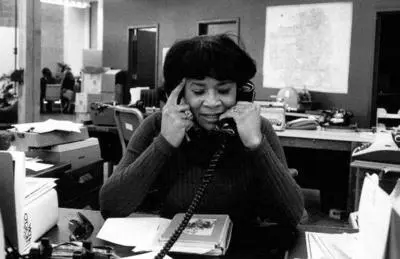The name Belva Davis holds a significant place in the history of American broadcast journalism. Over the course of nearly five decades, her contributions shaped the media landscape not just in Northern California but across the country. As the first African American woman television journalist on the West Coast, Anchor Retires Belva Davis is a moment that marks the culmination of an extraordinary career, one filled with groundbreaking achievements, challenges overcome, and a legacy that still influences journalists today. Her career was not just about reporting the news; it was about challenging the status quo, advocating for marginalized communities, and providing a voice to the unheard.
Early Life and Background: The Foundation of a Trailblazer
Born as Belvagene Melton on October 13, 1932, in Monroe, Louisiana, Belva Davis faced early life challenges that laid the foundation for her future determination. Growing up in the segregated South, she and her family encountered both racial and economic adversity. When she was eight years old, the family moved to Oakland, California, where they lived in a cramped two-bedroom apartment shared by eleven people. Despite the financial struggles, Oakland’s diverse culture inspired Davis, and it was here that she discovered her love for storytelling.
After graduating from Berkeley High School in 1951, becoming the first in her family to do so, Davis faced the financial reality that prevented her from pursuing her education at San Francisco State University. Instead, she worked at the Oakland Naval Supply Depot, earning a modest salary while continuing to nurture her passion for journalism. Little did anyone know that Anchor Retires Belva Davis would eventually become one of the most celebrated careers in broadcast news.
Breaking Into Journalism: A Step Toward History
In 1957, Belva Davis took her first step into journalism with a freelance assignment for Jet magazine, which focused on African American stories. Though the pay was low and her bylines were often omitted, this marked the beginning of her journey. Over time, Davis expanded her reach by writing for other African American publications like the Sun Reporter and Bay Area Independent.
Her breakthrough into broadcast journalism came in 1961 when she joined KSAN, an AM radio station in San Francisco. It was here that Davis began refining her skills as an interviewer and reporter. However, it was in 1963 when she made her television debut, covering an African American beauty pageant for KTVU, an Oakland-based station. Davis would go on to make history as Anchor Retires Belva Davis, becoming the first African American female journalist to appear on television in the region.
A Groundbreaking Career at KPIX-TV: Shattering Glass Ceilings
When Anchor Retires Belva Davis, the groundbreaking moment occurred in 1966, when she joined KPIX-TV as the first African American female journalist on the West Coast. This was a significant achievement in the face of a country still grappling with civil rights struggles and gender inequality. Davis’s time at KPIX would cement her status as a trailblazer in the world of television journalism.
At KPIX, Davis reported on monumental events, such as the Berkeley Free Speech Movement and the rise of the Black Panther Party, which defined the era. She also reported on significant social issues affecting the Bay Area and the nation at large. In 1970, she made history again by becoming one of the first African American women to anchor a major newscast in the United States. Davis’s calm demeanor and professional reporting made her an icon in the field.
Her career at KPIX spanned three decades, during which she covered pivotal moments, including the assassination of San Francisco Mayor George Moscone and Supervisor Harvey Milk, as well as the AIDS and crack cocaine crises. Through it all, Davis’s unwavering dedication to truth and fairness led to her becoming a respected and influential figure in the journalism world.
Transition to Public Television: Continuing Her Impact
In the 1990s, Davis made another bold career move by transitioning to public television. In 1993, she became the host of This Week in Northern California on KQED, a PBS affiliate in San Francisco. This move allowed Davis to continue her impactful work, focusing on local issues such as politics, community concerns, and public affairs. With her calm, insightful demeanor, Anchor Retires Belva Davis was able to further solidify her role as a voice of authority and compassion.
The show gained popularity for its thoughtful analysis and ability to tackle both local and national issues. Davis’s dedication to providing diverse perspectives on important matters made This Week in Northern California one of the most watched public affairs programs in the region.
Retirement and the End of an Era: Marking a Milestone
In February 2012, Anchor Retires Belva Davis, announcing her decision to step down as the host of This Week in Northern California. Her final broadcast aired on November 9, 2012, marking the end of an era in Northern California’s journalism history. The retirement was met with overwhelming support from viewers, colleagues, and community leaders, all of whom recognized her significant contributions to the media industry.
Although retired, Davis continued her work in advocacy and community service. She served on several boards, including those of the Museum of the African Diaspora and the Fine Arts Museums of San Francisco. In addition to her philanthropic efforts, she also played a crucial role in raising $5 million for the Museum of the African Diaspora in just one year.
The Lasting Legacy of Anchor Retires Belva Davis
The retirement of Anchor Retires Belva Davis does not diminish the influence she left behind. Throughout her career, she advocated for greater diversity and inclusion in journalism. Davis’s work paved the way for many other journalists from marginalized communities, and her approach to storytelling continues to inspire journalists worldwide. By breaking barriers in both race and gender, Davis reshaped the media landscape and ensured that the stories of those who were often overlooked were told.
Her contributions to journalism were widely recognized with numerous accolades, including eight Emmy Awards and lifetime achievement honors from prestigious organizations. In 2010, Davis published her memoir, Never in My Wildest Dreams: A Black Woman’s Life in Journalism, sharing her journey and offering insight into her experiences as a woman of color in a predominantly white industry.
Key Facts about Anchor Retires Belva Davis:
- First African American Woman Television Journalist on the West Coast:
Belva Davis made history as the first African American woman to work as a television journalist on the West Coast, breaking significant racial and gender barriers in the media industry.
- Long-Standing Career in Broadcast Journalism:
Over the course of more than 40 years, Davis worked at various media outlets, including KPIX-TV, where she gained national recognition for her reporting and became a respected anchor and journalist.
- Major Historical Events Covered:
Throughout her career, Davis reported on some of the most pivotal events in U.S. history, including the Berkeley Free Speech Movement, the Black Panther Party, the assassinations of George Moscone and Harvey Milk, and the rise of the AIDS and crack cocaine epidemics.
- Awards and Honors:
Davis received numerous prestigious awards, including eight Emmy Awards, and was recognized for her lifelong dedication to diversity and inclusion in journalism, receiving honors from organizations such as the National Association of Black Journalists.
- Published Memoir:
In 2010, Davis published her memoir, Never in My Wildest Dreams: A Black Woman’s Life in Journalism, where she shared her personal journey and challenges as a woman of color in the predominantly white field of broadcast journalism.
Conclusion: A Pioneering Legacy that Endures
Anchor Retires Belva Davis signifies more than just the end of a broadcast career; it marks the culmination of a life dedicated to breaking barriers and amplifying voices that had long been ignored. Belva Davis’s career is a testament to the power of perseverance, the importance of representation in journalism, and the transformative potential of media in society. Her trailblazing achievements paved the way for future generations of journalists, especially those from underrepresented backgrounds.
While Anchor Retires Belva Davis may have stepped away from the spotlight, her legacy endures as a powerful reminder of what it means to challenge the status quo and create lasting change in the media industry. Her influence will continue to guide and inspire journalists who strive to tell the truth, break boundaries, and give voice to the voiceless.
Frequently Asked Questions
- Why is Belva Davis seen as a pioneer in journalism?
Belva Davis is hailed as a pioneer due to her groundbreaking role as the first African American woman television journalist on the West Coast. In an industry dominated by white professionals, she overcame both racial and gender obstacles, earning respect and recognition for her contributions to broadcast journalism. - When did Belva Davis step away from her journalism career?
Belva Davis concluded her career in journalism on November 9, 2012, after serving as the host of This Week in Northern California for several years. Her retirement marked the end of an influential career that spanned more than four decades in the industry. - Which key events did Belva Davis report on throughout her career?
Over her illustrious career, Belva Davis reported on major historical events, including the Berkeley Free Speech Movement, the emergence of the Black Panther Party, the tragic assassinations of Mayor George Moscone and Supervisor Harvey Milk, as well as the AIDS crisis and the crack cocaine epidemic. - What prestigious awards and recognitions did Belva Davis receive during her career?
Throughout her career, Belva Davis was the recipient of many prestigious honors, such as eight Emmy Awards. She also received lifetime achievement awards from organizations like the American Women in Radio and Television and the National Association of Black Journalists, in recognition of her advocacy for diversity and inclusivity in the media. - Did Belva Davis author any books?
Indeed, Belva Davis wrote her memoir, Never in My Wildest Dreams: A Black Woman’s Life in Journalism, which was published in 2010. In this powerful account, she shares her experiences and the challenges she faced as a trailblazing woman of color in the predominantly white world of broadcast journalism.
Stay in touch to get more news & updates on Live Hint



